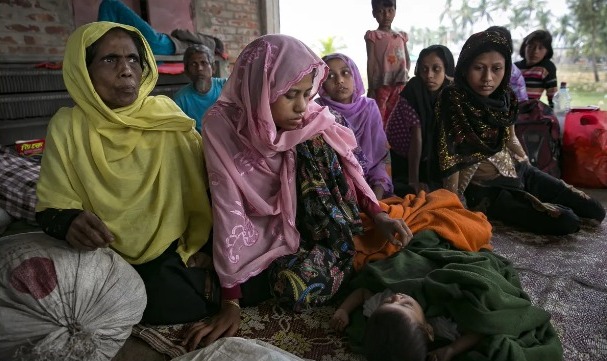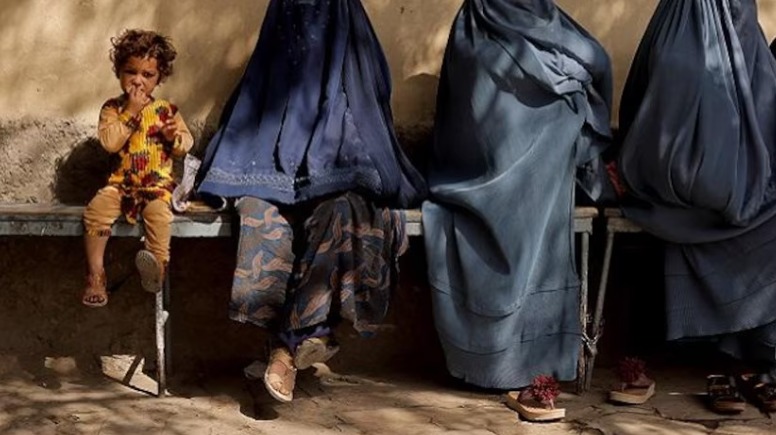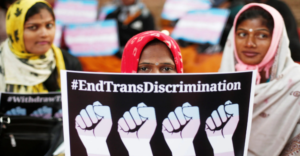Introduction
With the ongoing war between Palestine and Israel, it is not a shocker that it is the women and children again who are the victims of such deadly inhumane acts. Women, especially, have a dark history of war crimes against them.
It doesn’t matter who is in the right or who is in the wrong in the war, it has always been the women who have to suffer all the deadly and horrific atrocities of the same.
This article delves into the complex intersection of women and war crimes, shedding light on their varied experiences and involvement in these heinous acts.
Women and Children: The Perpetual Victims
War has always been a devastating force, causing widespread destruction, loss of life, and displacement of people. During armed conflicts, women and children are among the most vulnerable populations, often bearing the brunt of the horrors of war. War crimes, which include acts like rape, sexual violence, forced displacement, and targeting of civilian populations, have profound and lasting impacts on women and children.
1. Physical and Psychological Trauma
War crimes inflict severe physical and psychological trauma on women and children. The direct violence and brutality experienced during armed conflicts can result in injuries, disabilities, and emotional scars that last a lifetime. Survivors may suffer from post-traumatic stress disorder (PTSD), anxiety, depression, and other mental health issues, affecting their ability to lead normal lives.
2. Forced Displacement
The targeting of civilian populations in conflict zones can result in mass displacement. Women and children comprise a significant portion of those forced to flee their homes. Displacement disrupts their lives, depriving them of access to necessities like food, shelter, and healthcare. It can also lead to family separation, with children often becoming unaccompanied or separated from their caregivers.
3. Sexual Violence and Exploitation
Sexual violence is a particularly heinous aspect of war crimes. Women and girls are often subjected to rape, sexual slavery, and forced prostitution. These acts not only cause immediate physical harm but also expose victims to the risk of sexually transmitted infections and unwanted pregnancies. The social stigma and shame associated with sexual violence can further compound the suffering of survivors.
4. Intergenerational Effects
The effects of war crimes are often intergenerational. Children who grow up in conflict-affected environments may carry the scars of their traumatic experiences into adulthood. This can perpetuate cycles of violence and trauma, hindering efforts at post-conflict recovery and reconciliation.

Women’s Bodies as Sites of Political Contestation
Throughout history, women’s bodies have been subjected to political contestation in times of war. In armed conflicts worldwide, women’s bodies often become a battleground where political, social, and cultural forces converge.
Rape as a Weapon of War
One of the most egregious and widespread examples of women’s bodies becoming a site of political contestation in war is sexual violence. Rape is used as a weapon of war to instil fear, demoralise communities, and exert control over the opposing side. Perpetrators of sexual violence often exploit the vulnerability of women, subjecting them to horrific abuse and trauma. This heinous tactic is not only a crime against individuals but also a violation of entire communities.
Forced Pregnancy and Reproductive Control
In some conflicts, women are subjected to forced pregnancies, which can be seen as a form of political control. When women are forcibly impregnated, they become not only victims of sexual violence but also tools to alter the demographic composition of a region. This tactic is often used to create a sense of lasting domination and to further the goals of certain political or military groups.
Body as a Symbol of Cultural Identity
During wars, women’s bodies can also become symbols of cultural identity and resistance. Cultural markers, such as dress and physical appearance, may be used to identify individuals with a specific ethnicity, religion, or nationality. Women who embody these markers may be targeted for their cultural identity, leading to the perpetuation of conflict and the erasure of cultural diversity.
The Intersection of Gender and Nationalism
The intersection of gender and nationalism often leads to the politicization of women’s bodies. Women may be expected to embody specific nationalistic ideals, and any deviation from these expectations can result in social or political punishment. This contestation reinforces the gendered nature of nationalistic narratives and can be used to mobilize populations for political or military purposes.
Conclusion
Women’s bodies being the site of political contestation in wars is a disturbing and deeply entrenched issue. It highlights the intersection of gender, power, and conflict. In war crimes, the narratives that men are the protectors and women need to be protected leads to even more acts of horror against women.
In the attempt to protect one’s women, the tactic used is to attack the women on the other side. The “respect” of a society or a community lies in its women and so, if you take the respect of the women away, you take the respect of the society away.
Efforts to combat sexual violence, protect the rights of women in conflict zones, and promote women’s participation in peace processes are essential steps toward a more just and equitable world. Only by acknowledging and confronting the politicization of women’s bodies in wars can we hope to mitigate the profound and lasting impact it has on individuals and communities affected by conflict.
-ADITYA SRIVASTAVA
MUST READ: ISRAEL AND PALESTINE: A SAGA OF WAR, RETALIATION AND FIGHT FOR THE HOMELAND





